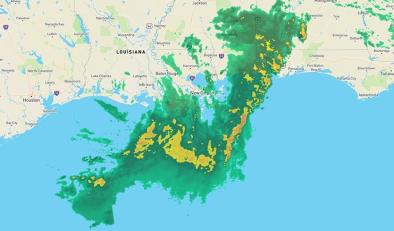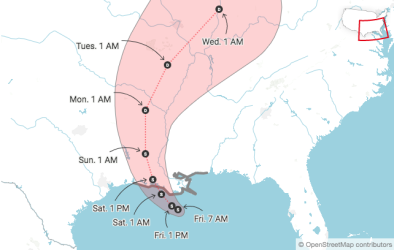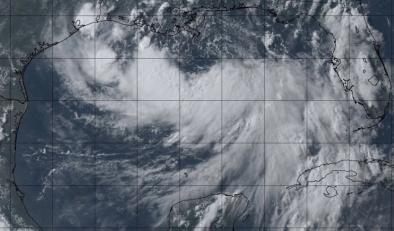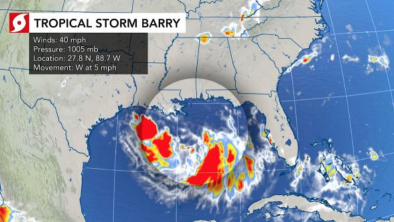Climate Change Fills Hurricanes With More Rain, Analysis Shows
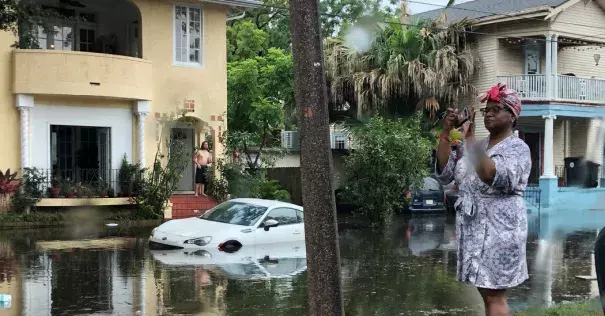
“Climate change is in general increasing the frequency and intensity of heavy rainfall storms,” said Andreas Prein, a project scientist with the National Center for Atmospheric Research.
This week’s rainfall came after the region experienced an extremely wet spring, causing the region’s rivers to swell, and raising concerns that the upcoming storm may overtop levees in New Orleans. “If you look at the records, mostly it’s the water that kills most people,” Dr. Prein said.
...
In recent years, researchers have found that hurricanes have lingered longer, as Barry is expected to do, and dumped more rainfall — a sign of climate change, said Christina Patricola, a research scientist at Lawrence Berkeley National Laboratory, and a co-author of a study that found that climate change is making tropical cyclones wetter. (Tropical cyclones include both hurricanes and tropical storms, which are hurricanes’ less speedier kin.)
Researchers have been studying the effects of climate change on tropical cyclones because those sorts of storms are driven by warm water. Water in the gulf is 0.5 to 2 degrees Celsius warmer, according to Dr. Prein, who said: “This is really increasing the likelihood of a hurricane to form in this basin. And it will increase the intensity of the hurricane as well.”
...
And the structure of cities may exacerbate the problem even further, said Gabriele Villarini, an associate professor of civil and environmental engineering at the University of Iowa.
At issue: Dirt absorbs water, but paved surfaces such as roads, sidewalks and even the footprint of building homes that make up cities don’t. The end result is that less water gets absorbed and the excess inevitably has to go somewhere.
...
Dr. Villarini noted that in the case of Hurricane Harvey, even absent the impact of urbanization, there was “a huge amount of rainfall. And I’m struggling to think how you would design a city so that basically you would be able to zero out any effect of flooding.”
...
What many scientists and experts agree on: As climate change increases extreme precipitation, cities will need to adapt.
Related Content
